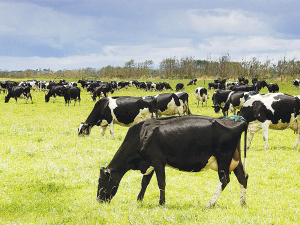It's all about economics
OPINION: According to media reports, the eye-watering price of butter has prompted Finance Minister Nicola Willis to ask for a 'please explain' from her former employer Fonterra.
 While greenhouse gas emissions are up, according to the latest statistics, agriculture, forestry and fishery saw a significant decrease in emissions.
While greenhouse gas emissions are up, according to the latest statistics, agriculture, forestry and fishery saw a significant decrease in emissions.
As farmers and tractors took to New Zealand’s motorways, towns and cities to protest the pricing of agricultural emissions, Stats NZ released the country’s quarterly greenhouse gas emissions figures.
The figures, which track the March 2022 quarter (January 2022 – March 2022), revealed the seasonally adjusted greenhouse gas (GHG) emissions had increased 1.7% on the previous quarter.
Agriculture, forestry and fishing saw the largest decrease, however, in emissions, down 0.8%.
Meanwhile, Stats NZ says electricity generation and manufacturing were the main culprit for the rise.
“One of the main sources of fluctuation in New Zealand’s total emissions is the variation in the energy sources used for electricity generation,” says Stats NZ environmental-economic accounts manager Stephen Oakley.
“The increase and then decrease in renewable share of electricity generation over the last two quarters has continued to create volatility in New Zealand’s overall production of emissions,” Oakley says.
Changed logos on shirts otherwise it will be business as usual when Fonterra’s consumer and related businesses are expected to change hands next month.
Reflecting on the past year, Horticulture New Zealand chief executive Kate Scott says there has been a lot to celebrate.
Ministry for Primary Industries (MPI) Director General Ray Smith is giving a big shout-out to the horticulture sector, especially kiwifruit.
Early forecasts for New Zealand's apples and pears point to a standout season marked by exceptional fruit quality and high pack-out rates.
Tickets are now available for Beef + Lamb New Zealand’s (B+LNZ) Out the Gate, returning from 19-21 May 2026 at Te Pae, Christchurch.
Dairy Women's Network (DWN) is welcoming AgriHealth as a new partner.